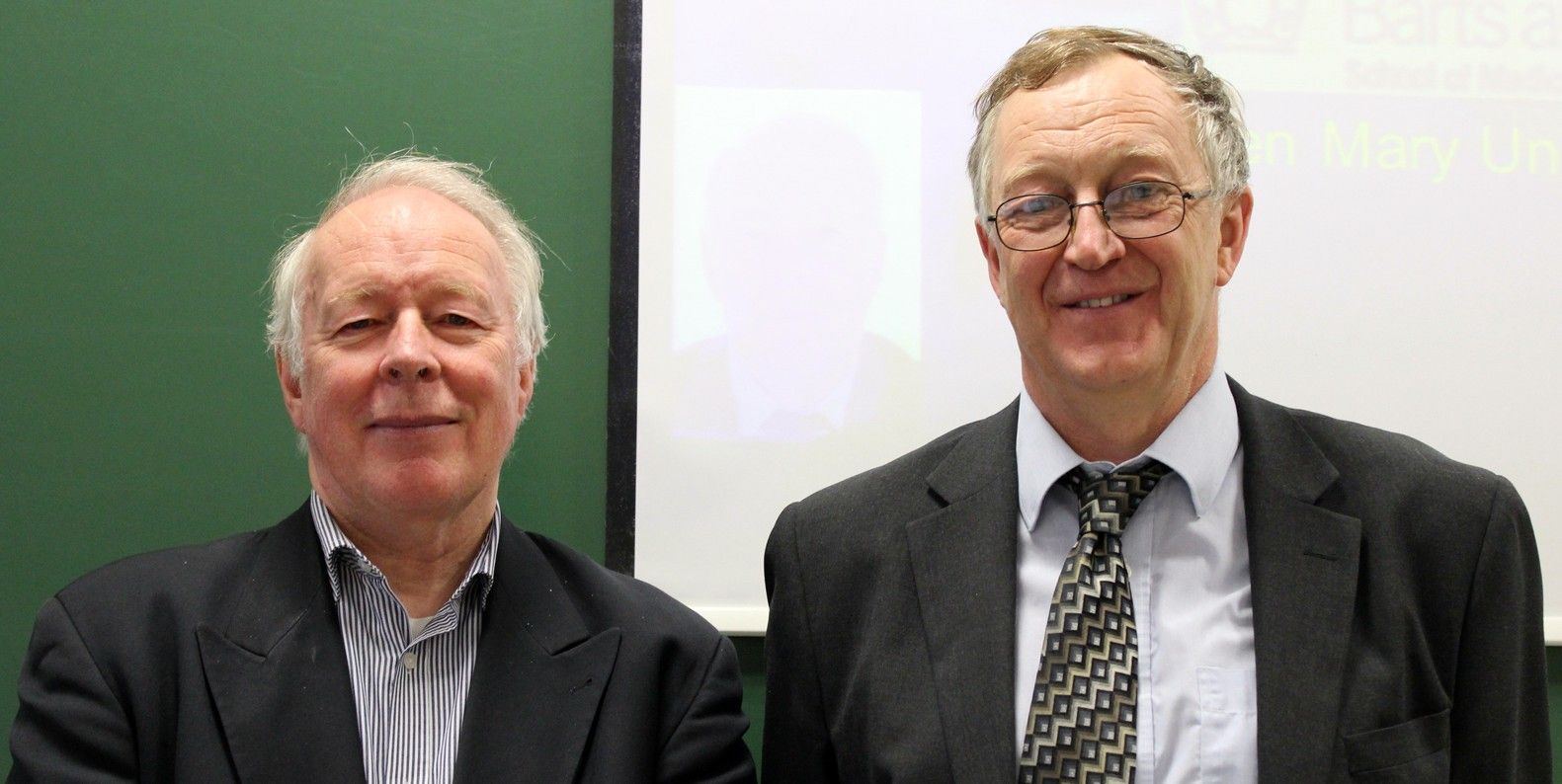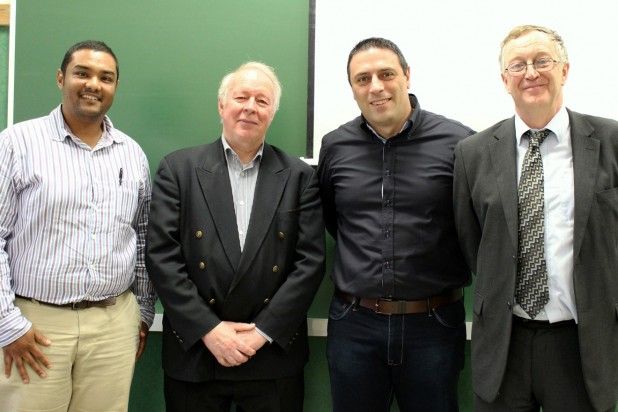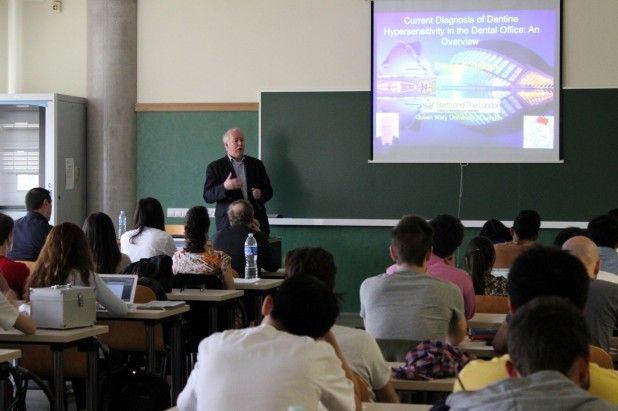
Professors Robert Hill and David Gillam, from the Barts and The London School of Medicine and Dentistry Institute, have been invited to the sessions of the Second International Week of Dentistry at the CEU-UCH University. Doctor Hill is professor of Physical Sciences in Relation to Dentistry and Doctor Gillam is working as a clinical lecturer in Periodontology in this international leader Institute in oral and dental sciences. They told us about the importance of international formation, research and professional practice in this field.
In your opinion, what would be the importance of receiving an international formation for future professionals of dentistry?
Doctor Hill: I think we are living in a very international world. It is good to impart information and collaborate on working internationally. Different universities have different skills in different areas and I think it is very important that we build on those different skills that are present in different parts of the world.
Doctor Gillam: The collaboration throughout the world is important to get and understand other people’s ideas and meet them. It is not just about education or training but getting along with other people and their interests. So, yes, it is a good way for us to come to this lovely city of Valencia and to meet new lovely people and to discuss about what we know.
Doctor Hill: It is also about the questions you get even from the people you are speaking with, for example some of the questions we got today, because people have different perspectives on things depending on their background and training so it is really important to get and understand that.
Where do you think that the majority of dentistry professionals is going to conduct their researches? Which are the next big areas?
Doctor Hill: One of the things you see is that 20, 30 years ago there were actually very few research projects conducted in India, Brazil or Asia but now you see some of these studies coming through, and they are really good and significant. For example, our University particularly works with China but India and Brazil are also growing very fast.
Doctor Gillam: I think it is important to collaborate with other countries, and I say, to develop their expertise so they will become center of excellence as well. I think the world of science is shifting from the USA and European countries to developing country and we should encourage it.
Doctor Hill: Brazil, particularly, has really moved on in the dental area, and some people at the Brazilian Government are encouraging to do so; for example most PhD students in Brazil have probably spent a year abroad working in a lab in another country and I think that this is how we internationalize the research. But that also means that there are students that can go to a lab abroad, pick up the skills and expertise and bring it back to their countries.
Doctor Gillam: Yes, I agree, for example we both went to David Ashley’s lab in Atlanta, Georgia (USA) and the skills we learnt there we brought back into our university and we are now using the techniques they taught us. That is how it goes, how we grow.

According to your professional experiences, what could be the current role of languages in the dentistry profession?
Doctor Gillam: English is now the international language but it could become another language such as Mandarin in a few years, language evolves but language is a medium for sharing ideas. For example someone in China could have a brilliant idea that they can express but the only way to do so is through language.
Doctor Hill: Actually, most schools are teaching in English because this is the official international language but for sure, this can change in the future.
In your opinion, what would be the evolution of this professional sector in the future?
Doctor Gilliam: I think we have too much information at the moment. Indeed technology is massive and we are told in our university that we need to think about ideas that have not been thought of yet because our students require more and better information. Guessing what is going to be big next which is key and really important in our particular research sector. That is why we need collaboration; we cannot make it on our own.
Can you tell us, Doctor Robert Hill, a bit more about your current work concerning “New biodegradable cement as degradable bone glue”?
Doctor Hill: We use a lot of adhesives in industry to stick things together, in orthopedics we actually screw things with big metal plates and we have to go back in often to remove them from the patient. So, if we could actually stick bones back together and if the adhesive degrades away after use, then that would be really attractive but it is quite challenging to get all the properties right.

Can you tell us, Doctor David Gillam, a bit more about the current work you are doing in collaboration with the Professor Hill concerning “Bioactive glasses for treatment of dental condition in dentine hypersensitivity”?
Doctor Gillam: It is basically blocking the tooth vials, which are open, to stop the fluid flooding in the tooth. That is the perceived wisdom of how it works. It does not work like that but that way you can see what we want; this is to say a new way to allow repairing tissues. It is two-way thing, we don’t just come here to talk, we also get something back from the students, and that is very important.






